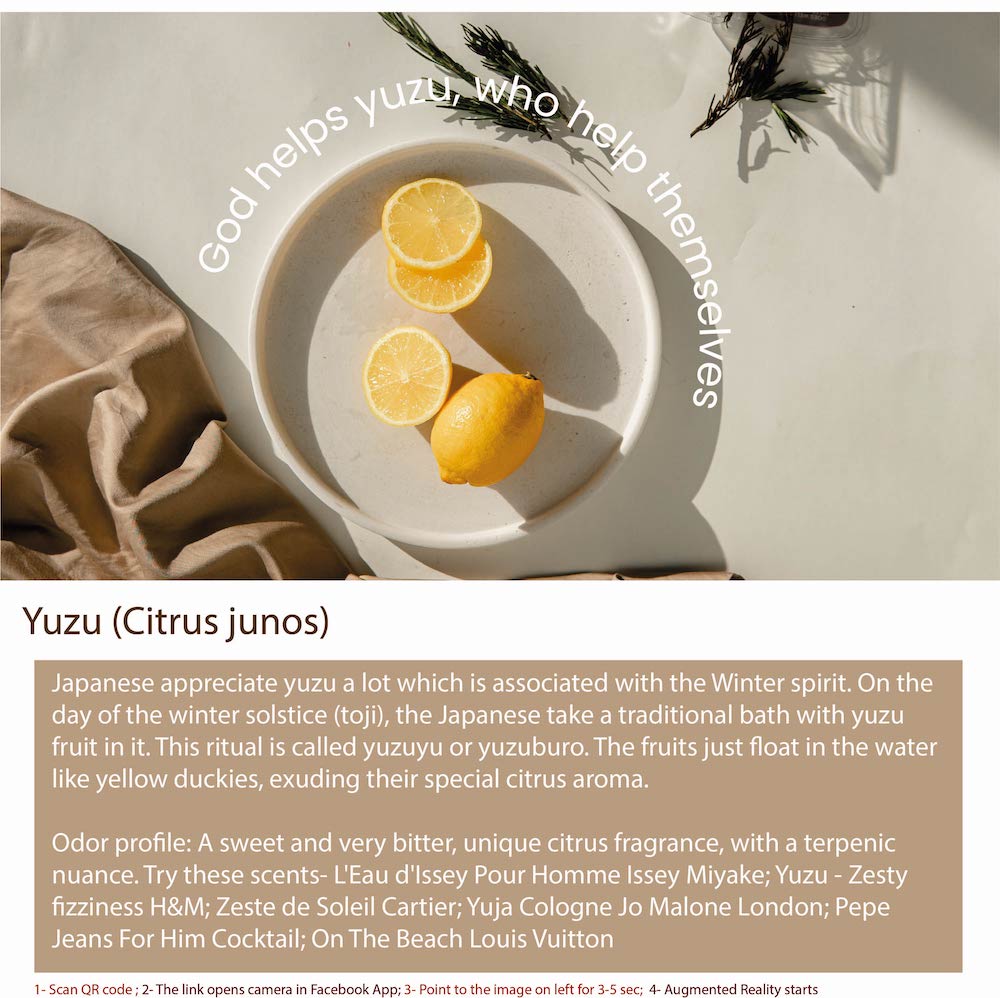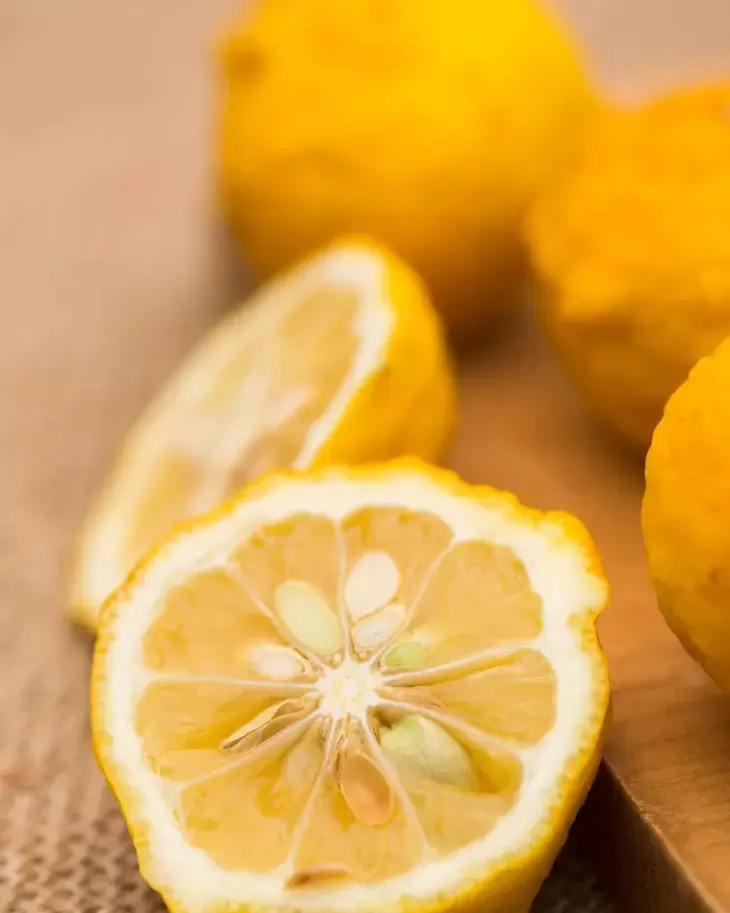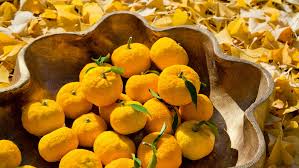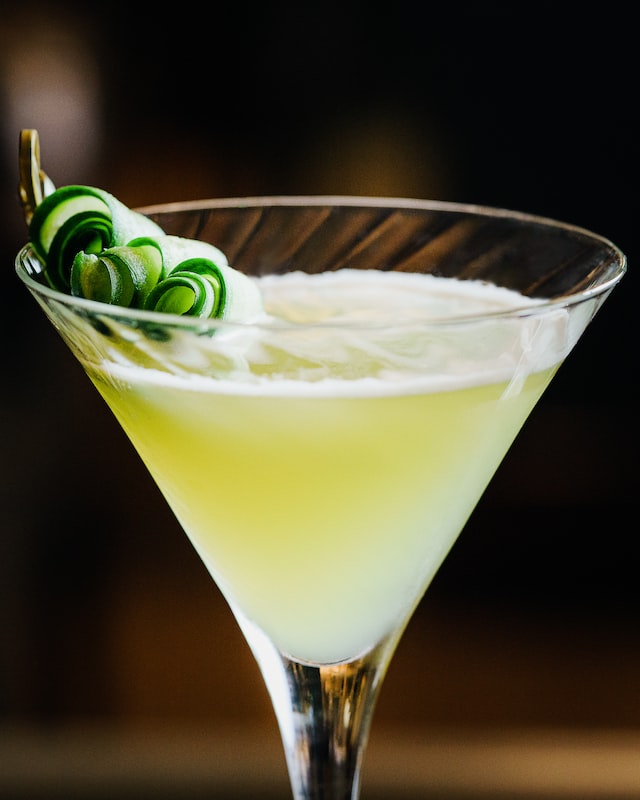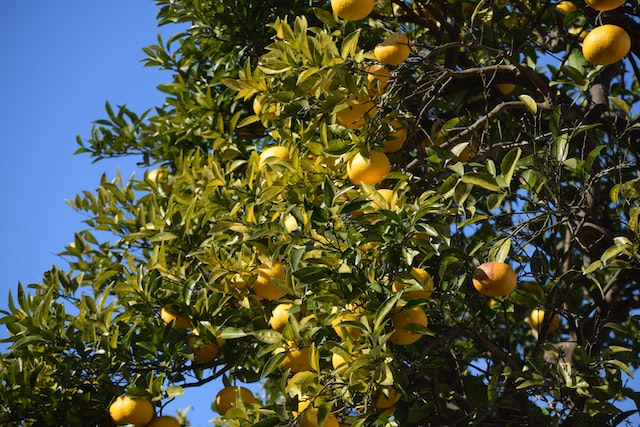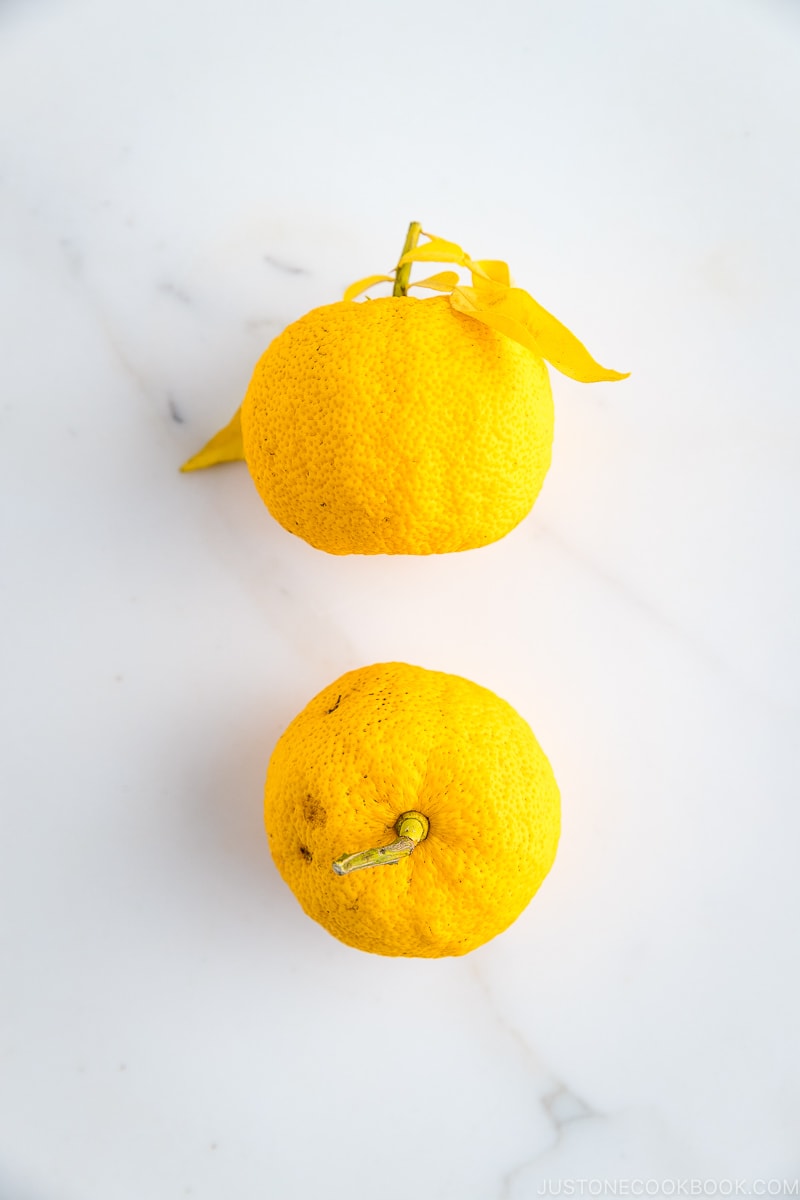Exploring the Captivating Yuzu Ingredient in Citrus Perfumes
Yuzu: The Exotic Citrus Treasure - From Perfumes to Fun Crazy Facts
Yuzu, scientifically known as Citrus junos, is an exotic and aromatic citrus fruit that hails from East Asia. This zesty gem holds a prominent place in various domains, including perfumes, fragrance, therapeutic oils, food, medicinal systems, history, and even fun crazy facts. In this article, we embark on a journey to explore the captivating allure of yuzu, uncovering its diverse uses and intriguing characteristics that have fascinated people for centuries.
1. Yuzu in Perfumes and Fragrance
The fresh and invigorating aroma of yuzu has inspired perfumers to incorporate its essence into fragrances. Yuzu extract and essential oil are used in perfumes to capture its distinctive and uplifting scent, evoking a sense of citrusy brightness and energy.
2. Yuzu in Therapeutic Oils
Yuzu essential oil is valued in aromatherapy for its potential therapeutic benefits. Its aromatic properties are believed to promote relaxation, reduce stress, and uplift the mood.
3. Yuzu in Culinary Delights
Yuzu is treasured for its culinary uses and is a beloved ingredient in various dishes. Its unique flavor, which is a delightful blend of lemon, mandarin, and grapefruit, makes it a popular addition to sauces, dressings, marinades, desserts, and beverages.
4. Yuzu in Medicinal Systems
Yuzu, like other citrus fruits, is rich in vitamin C and antioxidants, contributing to overall well-being and supporting the immune system. Its essential oil is sometimes used in traditional medicine for its potential health benefits.
5. Historical Significance of Yuzu
Yuzu has a long history of cultivation in Japan and other Asian countries. It is often used in cultural traditions, such as the winter solstice yuzu bath (yuzuyu) in Japan, where yuzu fruits are added to hot baths for their refreshing aroma and believed healing properties.
6. Fun and Crazy Facts about Yuzu
a. Symbol of Prosperity: In Japan, yuzu is considered a symbol of good luck and prosperity, and it is often presented as a gift during the New Year celebrations.
b. Yuzu Kosho: Yuzu zest is used to make a popular condiment called "yuzu kosho" in Japan, which is a spicy and citrusy paste.
c. Yuzu in Japanese Cuisine: Yuzu is a key ingredient in various Japanese dishes, including soups, hot pot (nabe), and dressings.
d. Yuzu in Cocktails: Yuzu juice and zest are used to add a unique twist to cocktails and mocktails.
e. Yuzu and Perfume: Yuzu's refreshing scent is often used in perfumes and scented candles to create an uplifting and rejuvenating atmosphere.
Yuzu, with its exotic aroma and versatile applications, stands as a citrus treasure cherished in perfumes, culinary creations, and beyond. From fragrances that evoke feelings of freshness and energy to intriguing fun facts, yuzu continues to captivate and bring a taste of East Asia to our lives. Whether savored for its unique flavor in culinary delights or appreciated for its potential therapeutic benefits, yuzu represents the bright and vibrant citrus fruits that enrich our senses and well-being. As we celebrate yuzu's contributions to various aspects of human life, it stands as a testament to the enduring appeal of exotic treasures from nature and their ability to enliven our culinary experiences and uplift our spirits.
Yuzu, scientifically known as Citrus junos, is an exotic and aromatic citrus fruit that hails from East Asia. This zesty gem holds a prominent place in various domains, including perfumes, fragrance, therapeutic oils, food, medicinal systems, history, and even fun crazy facts. In this article, we embark on a journey to explore the captivating allure of yuzu, uncovering its diverse uses and intriguing characteristics that have fascinated people for centuries.
1. Yuzu in Perfumes and Fragrance
The fresh and invigorating aroma of yuzu has inspired perfumers to incorporate its essence into fragrances. Yuzu extract and essential oil are used in perfumes to capture its distinctive and uplifting scent, evoking a sense of citrusy brightness and energy.
2. Yuzu in Therapeutic Oils
Yuzu essential oil is valued in aromatherapy for its potential therapeutic benefits. Its aromatic properties are believed to promote relaxation, reduce stress, and uplift the mood.
3. Yuzu in Culinary Delights
Yuzu is treasured for its culinary uses and is a beloved ingredient in various dishes. Its unique flavor, which is a delightful blend of lemon, mandarin, and grapefruit, makes it a popular addition to sauces, dressings, marinades, desserts, and beverages.
4. Yuzu in Medicinal Systems
Yuzu, like other citrus fruits, is rich in vitamin C and antioxidants, contributing to overall well-being and supporting the immune system. Its essential oil is sometimes used in traditional medicine for its potential health benefits.
5. Historical Significance of Yuzu
Yuzu has a long history of cultivation in Japan and other Asian countries. It is often used in cultural traditions, such as the winter solstice yuzu bath (yuzuyu) in Japan, where yuzu fruits are added to hot baths for their refreshing aroma and believed healing properties.
6. Fun and Crazy Facts about Yuzu
a. Symbol of Prosperity: In Japan, yuzu is considered a symbol of good luck and prosperity, and it is often presented as a gift during the New Year celebrations.
b. Yuzu Kosho: Yuzu zest is used to make a popular condiment called "yuzu kosho" in Japan, which is a spicy and citrusy paste.
c. Yuzu in Japanese Cuisine: Yuzu is a key ingredient in various Japanese dishes, including soups, hot pot (nabe), and dressings.
d. Yuzu in Cocktails: Yuzu juice and zest are used to add a unique twist to cocktails and mocktails.
e. Yuzu and Perfume: Yuzu's refreshing scent is often used in perfumes and scented candles to create an uplifting and rejuvenating atmosphere.
Yuzu, with its exotic aroma and versatile applications, stands as a citrus treasure cherished in perfumes, culinary creations, and beyond. From fragrances that evoke feelings of freshness and energy to intriguing fun facts, yuzu continues to captivate and bring a taste of East Asia to our lives. Whether savored for its unique flavor in culinary delights or appreciated for its potential therapeutic benefits, yuzu represents the bright and vibrant citrus fruits that enrich our senses and well-being. As we celebrate yuzu's contributions to various aspects of human life, it stands as a testament to the enduring appeal of exotic treasures from nature and their ability to enliven our culinary experiences and uplift our spirits.
To experience augmented reality, please open the Facebook-app using QR code and point to the image below
Unveiling the Essence of Yuzu: A Key Ingredient in Citrus Perfumes
Yuzu is a citrus fruit that is native to East Asia, specifically China and Japan. It is a cross between a mandarin orange and a pomelo, and is known for its unique flavor and aroma. The fruit is typically small and round, with a thin, bumpy skin that is bright yellow when ripe.
The flavor of yuzu is a combination of tart and sweet, with a strong, distinctive aroma that is often described as a mix of grapefruit, mandarin orange, and lime. The fruit is high in vitamin C, and is traditionally used in Japanese cuisine as a seasoning or garnish, as well as in traditional medicine.
Yuzu is mostly used in Japan and Korea, and is becoming more popular in other parts of the world. It is used to make yuzu juice, yuzu vinegar, yuzu soy sauce, yuzu kosho (a paste made from yuzu zest, chili peppers, and salt) and yuzu jam. Yuzu is also used as a garnish, and to flavor tea, ice cream, and other desserts.
In perfumery, Yuzu is used to give freshness and bright notes to the fragrance. It's a popular note in colognes, especially in Japan and Korea. Some famous perfume brands like Jo Malone, Le Labo and Comme des Garçons have used yuzu in their perfumes.
The flavor of yuzu is a combination of tart and sweet, with a strong, distinctive aroma that is often described as a mix of grapefruit, mandarin orange, and lime. The fruit is high in vitamin C, and is traditionally used in Japanese cuisine as a seasoning or garnish, as well as in traditional medicine.
Yuzu is mostly used in Japan and Korea, and is becoming more popular in other parts of the world. It is used to make yuzu juice, yuzu vinegar, yuzu soy sauce, yuzu kosho (a paste made from yuzu zest, chili peppers, and salt) and yuzu jam. Yuzu is also used as a garnish, and to flavor tea, ice cream, and other desserts.
In perfumery, Yuzu is used to give freshness and bright notes to the fragrance. It's a popular note in colognes, especially in Japan and Korea. Some famous perfume brands like Jo Malone, Le Labo and Comme des Garçons have used yuzu in their perfumes.
Experience the Freshness of Citrus Scents at Scentopia Singapore
Yuzu fun facts
- Yuzu is often used in traditional Japanese hot spring (onsen) baths, where the fruit is placed in a small mesh bag and the hot water is poured over it. The aroma of the yuzu is said to have relaxing and rejuvenating properties.
- In Japan, yuzu is traditionally associated with winter and is often used in holiday and New Year's celebrations. It is used to make a traditional hot pot dish called "yuzu-kosho nabe" and yuzu-flavored mochi (sweet rice cakes)
- Yuzu is also widely used in traditional Chinese medicine to treat a variety of ailments, including colds, flu, and high blood pressure.
- In Japan, yuzu has a special place in the tea ceremony, where it's used to make a special tea called "yuzu-cha" which is made by steeping yuzu peel in hot water.
- Yuzu trees are generally hardy, and can survive temperatures as low as -20 degrees Fahrenheit. They are also relatively disease and pest-resistant.
- Yuzu is a difficult fruit to cultivate and is considered a luxury item in Japan and other countries. The fruit is in high demand and can be quite expensive
- Yuzu has become increasingly popular in the Western culinary world, where it is used as an ingredient in a wide range of dishes, from savory to sweet, including marinades, dressings, cocktails, and desserts.
Discover Your Signature Scent with Premium Yuzu Fragrances
Yuzu has been an important part of East Asian culture for many centuries. In Japan, the fruit has been associated with the aristocracy and the imperial court, and was often presented as a gift to the emperor.
In art, yuzu has been depicted in many traditional Japanese paintings, particularly those related to the tea ceremony. These paintings often show yuzu trees in bloom, or yuzu fruit being used to make tea. Yuzu is also depicted in traditional Japanese ukiyo-e woodblock prints, where it's used as a symbol of wealth and luxury.
In Chinese art, yuzu has been depicted in traditional Chinese paintings, particularly those related to nature. Yuzu is depicted as a symbol of longevity and auspiciousness.
Yuzu is also an important symbol in literature. In Japan, yuzu is often used in haiku poetry, where it's used to represent the arrival of winter and the end of the year. Yuzu is also mentioned in Chinese literature, where it's used to represent the arrival of spring.
In contemporary art, Yuzu is still being used as a symbol of season, luxury and cultural identity. It's also used as a symbol of fusion and adaptation, as the fruit is becoming more popular in other parts of the world.
In art, yuzu has been depicted in many traditional Japanese paintings, particularly those related to the tea ceremony. These paintings often show yuzu trees in bloom, or yuzu fruit being used to make tea. Yuzu is also depicted in traditional Japanese ukiyo-e woodblock prints, where it's used as a symbol of wealth and luxury.
In Chinese art, yuzu has been depicted in traditional Chinese paintings, particularly those related to nature. Yuzu is depicted as a symbol of longevity and auspiciousness.
Yuzu is also an important symbol in literature. In Japan, yuzu is often used in haiku poetry, where it's used to represent the arrival of winter and the end of the year. Yuzu is also mentioned in Chinese literature, where it's used to represent the arrival of spring.
In contemporary art, Yuzu is still being used as a symbol of season, luxury and cultural identity. It's also used as a symbol of fusion and adaptation, as the fruit is becoming more popular in other parts of the world.
Crafting Exquisite Perfumes with Yuzu: Our Expertise
The scent of yuzu is often described as being a combination of grapefruit, mandarin orange, and lime. It has a strong, distinctive aroma that is both tart and sweet, with a slight hint of bitterness. The scent is most intense in the zest of the fruit, but the juice and essential oil also have a strong aroma.
The scent of yuzu is often used in perfumery to give a fresh and bright note to the fragrance. It's a popular note in colognes, especially in Japan and Korea. Some famous perfume brands like Jo Malone, Le Labo and Comme des Garçons have used yuzu in their perfumes.
Yuzu scent is also used in aromatherapy to help relieve stress and anxiety, and promote relaxation. The aroma of yuzu is believed to have a calming effect on the mind and body.
Yuzu scent is also used in cosmetics, such as soap and body lotions, to give a refreshing, uplifting and invigorating experience.
Overall, the scent of yuzu is unique and complex, and can add a bright and refreshing quality to any product it's used in.
The scent of yuzu is often used in perfumery to give a fresh and bright note to the fragrance. It's a popular note in colognes, especially in Japan and Korea. Some famous perfume brands like Jo Malone, Le Labo and Comme des Garçons have used yuzu in their perfumes.
Yuzu scent is also used in aromatherapy to help relieve stress and anxiety, and promote relaxation. The aroma of yuzu is believed to have a calming effect on the mind and body.
Yuzu scent is also used in cosmetics, such as soap and body lotions, to give a refreshing, uplifting and invigorating experience.
Overall, the scent of yuzu is unique and complex, and can add a bright and refreshing quality to any product it's used in.
Yuzu in Perfumery: Adding a Burst of Freshness
There are several famous perfume brands that have featured yuzu as a note in their fragrances:
- Jo Malone - Jo Malone's "Yuzu & Cocoa" cologne features yuzu as the top note, combined with cocoa, vanilla, and white musk.
- Le Labo - Le Labo's "Yuzu" cologne features yuzu as the top note, combined with lemon, mandarin, and petitgrain.
- Comme des Garçons - Comme des Garçons' "Yuzu" cologne features yuzu as the main note, combined with other citrus fruits like lemon and mandarin.
- Atelier Cologne - Atelier Cologne's "Soleil Blanc" features yuzu as the main note, combined with other citrus fruits like bergamot, orange, lemon and mandarin, and base notes of coconut milk, vanilla and musk.
- Diptyque - Diptyque's "Eau de Lierre" cologne features yuzu as the main note, combined with other citrus fruits like lemon and mandarin, and base notes of ivy leaves, blackcurrant, and cedarwood.
- Jo Loves - Jo Loves' "Yuzu & Star Anise" features yuzu as the main note, combined with star anise, ginger, and black pepper.
Join Scentopia, Sentosa's latest tourist attraction wonderful orchid scent crafting, fragrance tour, bridal shower or corporate team building which includes perfume making onsite and offsite, beach activities and more. We also serve primary school learning journey, secondary students and pupil on industrial excursions. Know more about our orchids perfume bar or therapeutic orchid scents and other wellness aromas. Conatct Perfume workshop or book a scent crafting session here.

